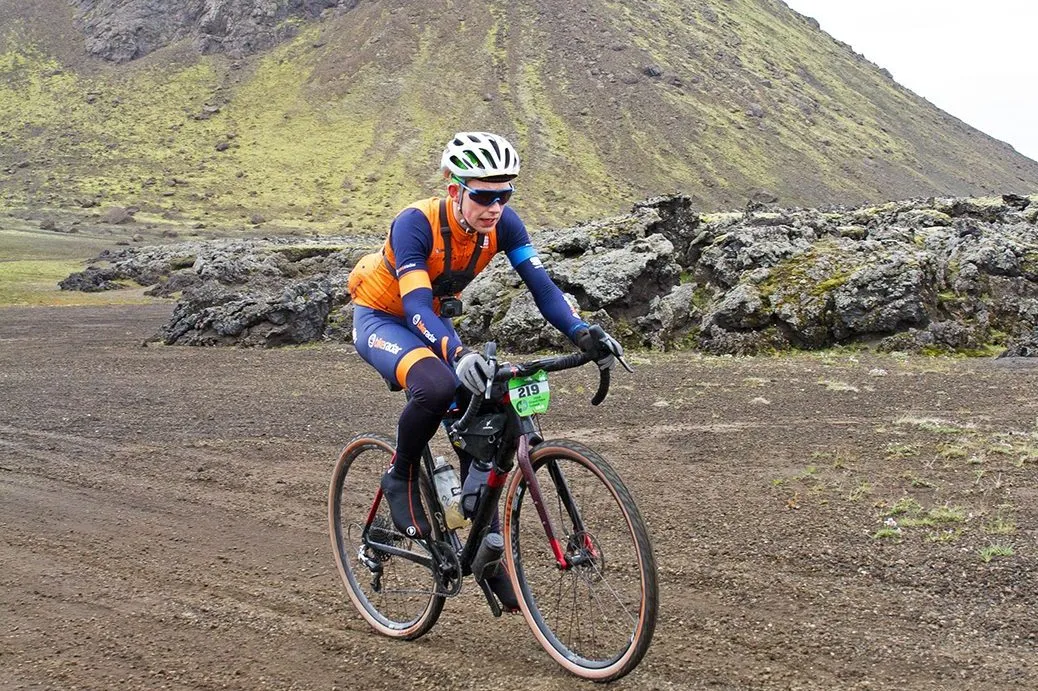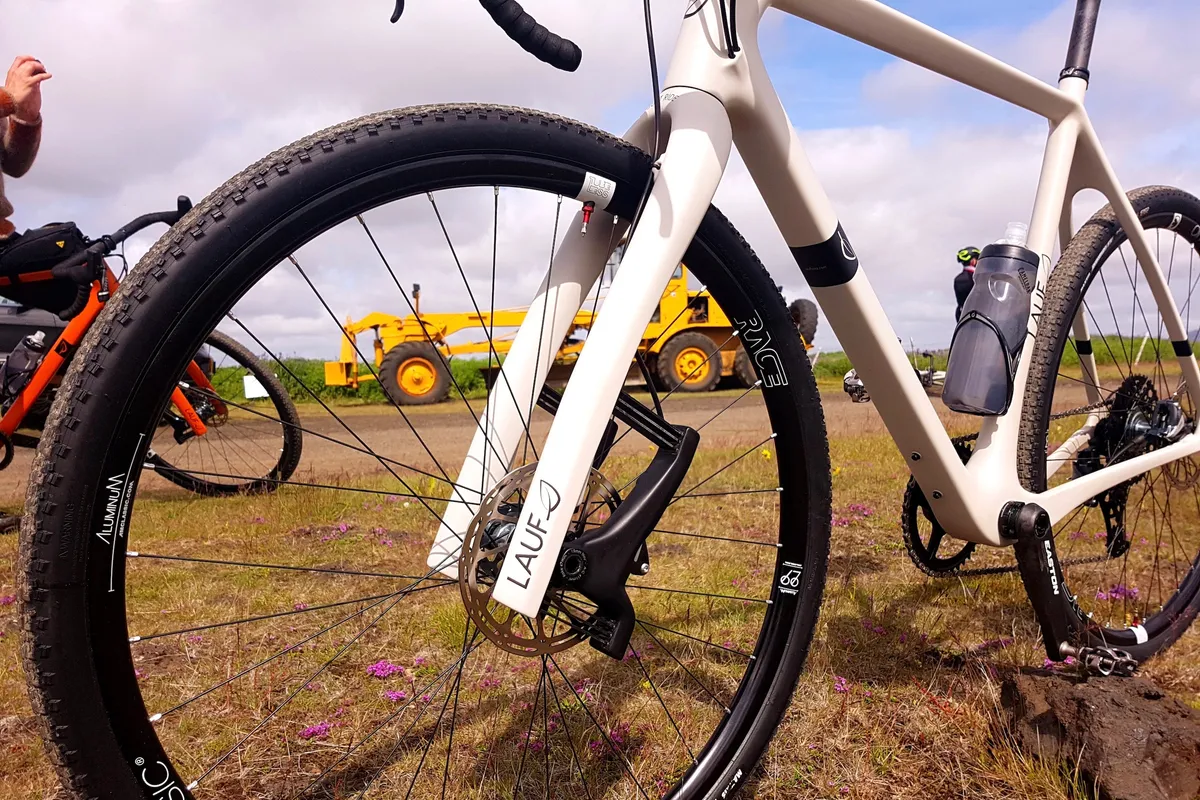Icelandic bike and suspension fork company Lauf has announced that from today it's moving away from a traditional distributor-supported business model to go direct to consumer for their bike sales.
To mark this, its True Grit and Anywhere line of bikes have had their prices reduced by some fairly impressive margins.
While still a small company, Lauf has made a splash in the growing gravel market, with its 30mm leaf-sprung suspension fork arguably its breakthrough product. It also released its True Grit gravel race bike and more all-rounder Anywhere gravel/rough-road bike in recent years.

Lauf's first product, a 60mm travel mountain bike suspension fork, came out in 2014 and was followed by a stiffer version a year later, as well as a fat-bike fork.
In 2016, the Grit gravel fork came along, and was one of the first gravel-specific suspension forks available after-market (the 30mm Lefty Oliver was, at that point, available on the Cannondale Slate).
The True Grit appeared in early 2018 and the Anywhere in 2019.
Going direct
Lauf says that moving to a direct-sale model gives it the opportunity to not only bring consumers the best price possible, but also puts the company in a far better position when it comes to communicating with its customers through the purchasing process on such things as product updates, availability and shipping dates.
While the bulk of its customer service will take place in Iceland (with video calls available where needed), Lauf will be keeping a service centre in the USA.
Pricing for its bikes is now much cheaper. For example, its base-level Anywhere Weekend Warrior drops from $3,340 to $2,390 (£2,290 / €2,590) – a 28 per cent reduction.
While the top-end True Grit Ultimate falls from $10,490 to $6,590 (£6,390 / €6,990) – a 37 per cent drop.
Lauf is also offering customers who've purchased a bike in the last 30 days a store credit note to the value of the difference, while those thinking about making a purchase can book a video call slot with the team to discuss the bike and ask any questions.
Full details of the bikes can be found on Lauf's website.
Lauf's True Grit frames, and forks (such as the Trail Racer mountain bike fork, Carbonara fat bike fork, Grit and Grit SL gravel forks) will still be available via their in-country distributors, and thus through local bike shops.
Lauf fork updates
While the shift in business model is the main news, Lauf will also now be tuning the glass-fibre springs in its fork according to the size of bike it will be fitted to.
While the forks don't have any adjustment (Lauf's argument is that with just 30mm of travel, none is really needed), having the same spring rate for the smallest and largest bikes doesn't make much sense.

As such, smaller bikes will receive a lighter spring, while larger bikes will have a heavier spring, to reflect average rider weights for those bike sizes.
Is direct to consumer the future?
Lauf is far from the first brand to sell its bikes direct, and the model has a proven track record of giving the consumer much improved value for money.
Most direct-sale brands have built their companies around this model though, and shifting the way in which the business operates after six years of trading may well come with its own challenges.
Without dealer support, Lauf will be responsible for its own customer service, and direct-sale brands can live-or-die by their ability to keep customers happy remotely.
Offering video call support, where needed, sounds like a good idea. With many people's working practices having changed due to the coronavirus pandemic, many will be used to, and more comfortable with, video calls, and Lauf is the first brand we've come across offering this.
Will we see more brands head this way? With the global economy projected to suffer in the short- to mid-term, I think consumers will be looking for bikes that offer better value at the expense of being able to walk in to a bricks and mortar shop to make a purchase and receive support.
If brands can get their remote customer service systems in place to adequately support customers, and maintain a good reputation throughout, those barriers should drop.
In doing so, we may see a continuation of the overall market shifting away from traditional selling methods, which, in turn may make more brands consider the direct-sale model.
Lauf no-doubt benefits from its smaller size, which makes it easier to pivot its model, so we're not expecting to see any of the larger bike brands switch model anytime soon.
However, tides are changing when it comes to the large global brands.
Back in 2015 Trek debuted Trek Connect, its online direct-sales platform, but it seems that the project has been quietly dropped – though some bikes (and, of course, its customised Project One bikes) are still available via Trek's website.
Likewise, Specialized offers a similar service, but what this hasn't done is create any price drops across its range, to avoid under-cutting its dealer network.
Other models include direct-sales that still support dealers. Orbea, for example, allows for bikes to be purchased online and shipped to your local dealer for final build and collection, giving you that physical point of contact with the brand.
I don't think we'll ever see a wholesale shift to direct-sale brands, especially because the benefits of maintaining a dealer network for the bigger brands, who arguably also want to attract a broader range of cyclists than smaller, niche brands that target highly-informed riders, will still exist.
And there will always be customers who want to see a bike in the flesh before making a purchasing decision, and while demo series from direct to consumer brands are plentiful, they're relatively limited in scope.
However, expect a gradual increase of brands looking at the model as a way to offer improved value in a market where customers are increasingly comfortable with new forms of communication.
